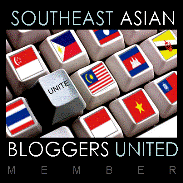Inequality in the Heart?
The rich get richer and the poor get poorer. This statement has long been a truism of unbridled capitalism and it doesn't require an economist to recognize its validity. Capitalism may be the best - or, at least, the most viable - economic system that humans have come up with, but it is one that, if allowed to operate unfettered, will, indeed, crush society's most vulnerable.
It's always exciting to watch underprivileged nations develop their economies into thriving engines that allow a middle class to develop and even the poorest to reap benefits. In theory, globalization can bring about exactly that. In reality, however, the situation is somewhat different.
A report just published by the Asia Development Bank points out a rising inequality across almost all of Asia, the continent that seems to be reaping some of the biggest benefits of the move toward globalization. From Nepal to China to Laos, income inequality has soared and absent a concerted effort to direct the benefits of global capitalism to each nation's most vulnerable, there's little to make us think that such inequality will resolve itself.
Wages of English-speaking graduates in India, for example, are rising fast as the country's information technology booms, but pay for unskilled labor is stagnating. That, of course, is not particularly surprising. Many college graduates were urged to college by fathers determined that their children would not face the same hardships they experienced because they had little or no education. But as people establish themselves with homes, cars, vacations and luxury items, it is imperative that they realize their own good luck and know that their luck is not universal.
According to the report, today's inequality could not only darken growth prospects, but it could also increase the risk of potentially violent social strains.
Some 15 years ago, Los Angeles exploded in fire and violence in reaction to a misconceived verdict in a police brutality case. Although rioters pointlessly burned local businesses, they also looted widely, carrying off expensive electronic items, clothes and food. The jury that acquitted the accused cops was all-white and from a middle-class suburb. Those rioting, primarily African- and Hispanic-Americans, came from the lowest economic rung of American society. Although their rage was often characterized by commentators as racial in origin, it was also rightly characterized by some as economic. Why else cart off luxury items from devastated businesses?
The haves and the have-nots. That's how many people divide the world. Then they shrug their shoulders and say that there is nothing that they can do about it.
With money pouring into previously impoverished Asia, however, something can be done about it, at least, on a nation-by-nation basis. Improved and accessible education is the first step; widespread jobs programs would be the second. Preceding that, however, must come a realization that can only originate in the human heart. And that is that "my good fortune" is far from universal.















1 comment:
ang daming gulo.
nakakasakit sa ulo.
Post a Comment